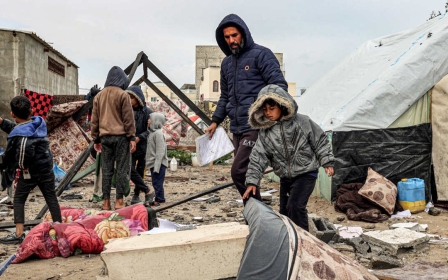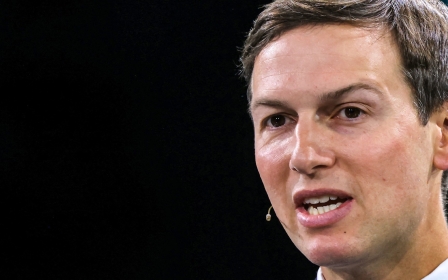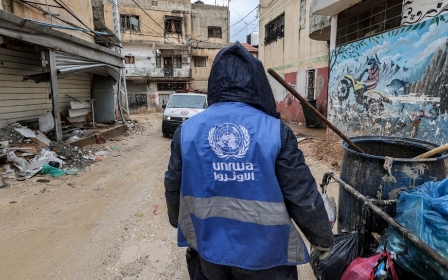UK: MPs call on government to say if Israel is committing war crimes in Gaza
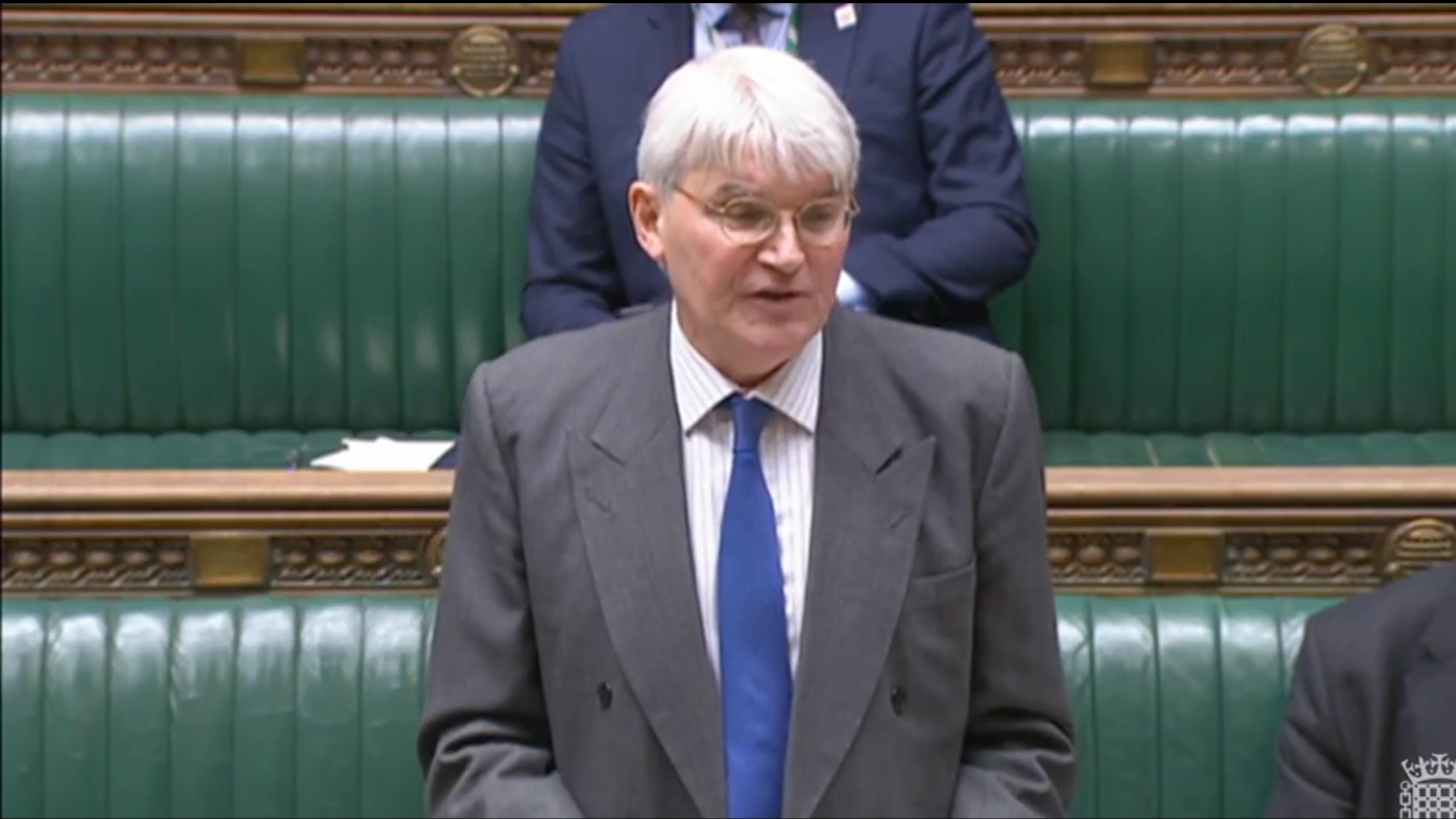
British MPs have called on the UK government to say whether it has updated its assessment of Israel’s compliance with international humanitarian law in light of a worsening situation in Gaza, which a UN-backed assessment has found as being in a state of imminent famine.
During a heated parliamentary debate which unfolded over two hours on Tuesday, foreign office minister Andrew Mitchell was repeatedly asked by members of his own Conservative Party and opposition parties whether the government believed Israel was committing a war crime by starving Palestinians.
The debate came a day after a UN-backed report found that 300,000 Palestinians trapped in northern Gaza are facing famine with another 1.1 million starving.
“As we debate this topic, children are starving to death in Gaza. Babies are so malnourished that Unicef says that they do not have the energy to cry,” said Labour's Zarah Sultana.
“Israel is using starvation as a weapon of war to collectively punish the Palestinian people… will the minister finally admit that officials have warned him that Israel is breaking international humanitarian law?”
New MEE newsletter: Jerusalem Dispatch
Sign up to get the latest insights and analysis on Israel-Palestine, alongside Turkey Unpacked and other MEE newsletters
Mitchell said the government was “deeply concerned” about the growing risk of famine, and repeatedly stressed the efforts it is making to get humanitarian aid into Gaza as he conceded “Israel must do more”.
“Air and sea deliveries cannot be a substitute for the delivery of aid through land routes,” he said. “We continued to press Israel to open more land crossings for longer, and with fewer screening requirements.”
But pressed for updates on the foreign office’s assessment of Israel’s compliance with international humanitarian law by both Labour's David Lammy, the shadow foreign secretary, and the Conservatives' Alicia Kearns, who heads the foreign affairs select committee, Mitchell could not be drawn to share details.
“In respect of international humanitarian law, we are going through the necessary legal processes, which are complex,” Mitchell said. “As soon as we are in a position to update the House on what we have set out clearly before, we will do so.”
Why assessment matters
Beyond its inherent value, the foreign office’s assessment of Israel’s compliance with international humanitarian law is critical for UK arms exports to the country.
The UK government is obligated to suspend licences for arms exports if it determines that there is a clear risk that British weapons could be used in serious violations of international humanitarian law.
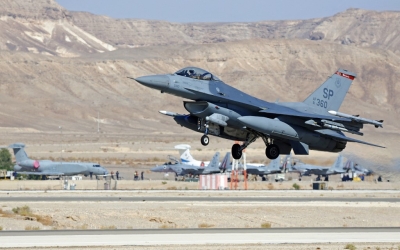
During the debate, Labour MP Liam Byrne and chair of the Business and Trade Committee noted a new foreign office cell created to assess international humanitarian law compliance.
“Will he publish every assessment that that cell has made of Israel’s compliance with international humanitarian law?” Byrne asked Mitchell.
“Will he tell the House whether the threshold has now been reached to review or cancel any extant open general export licence for arms sales?”
Mitchell responded: “The right honourable gentleman has served at a senior level in government and knows what governments do and do not publish.
“However, he can rest assured that when we receive advice on international humanitarian law, we look at it extremely carefully, and when the law officers make their judgements on this matter, we come to the House and update it. That is what we will do in due course.”
Colonna report
Mitchell also told MPs that the UK expected to receive an interim report on Wednesday from Catherine Colonna, the former French foreign minister, who is leading an investigation into Israeli allegations that Unrwa staff participated in the 7 October attacks.
Last week, Mitchell said the government was awaiting that interim report, as well as another interim report from the UN Office of Internal Oversight Services (OIOS) which is also investigating the allegations, before it would make a decision about whether to resume funding to the UN agency.
It is understood that other countries like Canada, which resumed funding to Unrwa last week, received the interim UN OIOS report earlier this month, but the UK has not confirmed publicly whether it has it in hand.
“We hope that [Colonna’s] report will show a road map by which funding to Unrwa from Britain and many other countries can be restored,” Mitchell said.
MP calls for legal advice
Even after the debate ended, Labour MP John McDonnell continued to probe ministers, specifically asking the government to publish legal advice so that members of parliament could be clear on their duties as Israel continues to be supplied with arms which “will have been used in the attacks on Gaza”.
“It is important that we all know our legal responsibilities in respect of the potential complicity of this government in war crimes,” McDonnell said.
'The minister just said that the government are operating under the rule of law, but some of us believe that is not true any more'
- John McDonnell MP
Mitchell, noting McDonnell was “ingeniously” attempting to continue the debate, said the experienced MP “knew perfectly well that the government operate under the rule of law”.
"When it comes to arms sales, the arms regime and the work of the arms inspection committee, all those matters are determined by the law of the land," Mitchell said.
"When it comes to international humanitarian law, the position is precisely the same: the government take advice from the law officers, who are charged with advising us on these matters, and the government act on that advice."
McDonnell responded by saying he wasn't seeking to extend the debate, but to "make an incredibly serious point".
“The minister just said that the government are operating under the rule of law, but some of us believe that is not true any more because of how the International Court of Justice judgement was phrased," he said.
"So we need advice as individual members, separate from the government."
Middle East Eye delivers independent and unrivalled coverage and analysis of the Middle East, North Africa and beyond. To learn more about republishing this content and the associated fees, please fill out this form. More about MEE can be found here.


